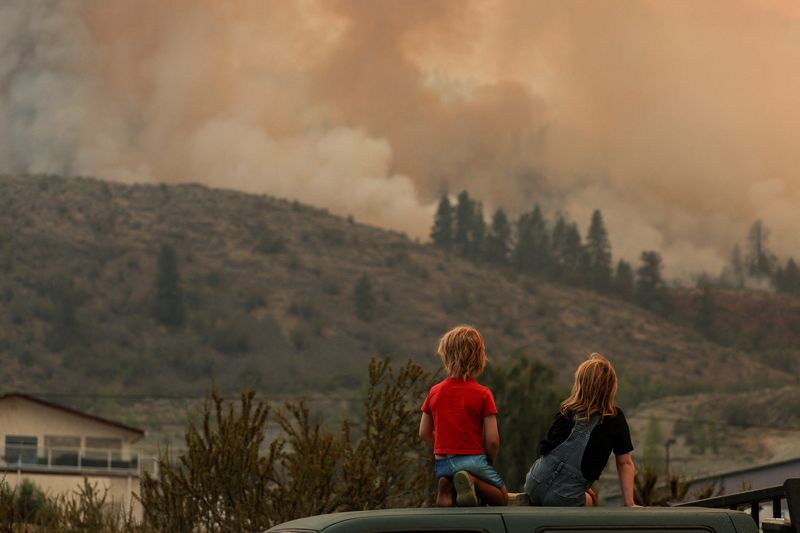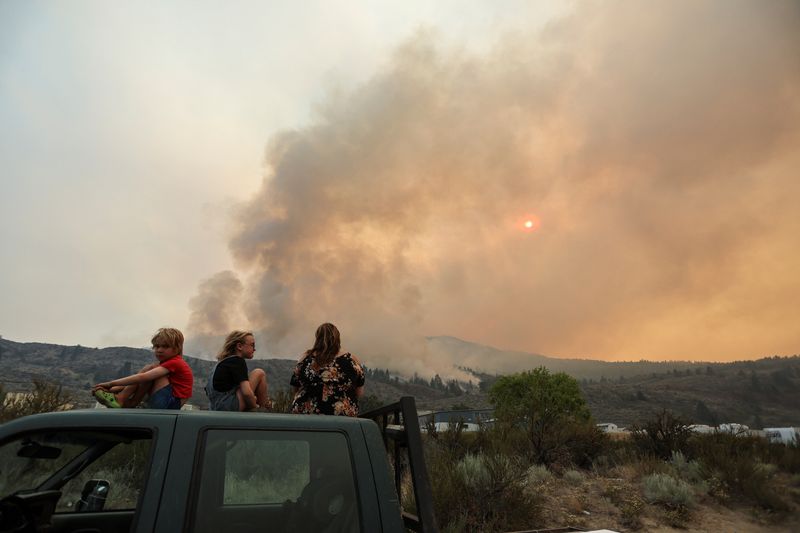OTTAWA (Reuters) – Forest fires in Canada this year have released 290 million tonnes of carbon, doubling a previous annual record, and emissions are set to rise as hundreds of flames remain active across the country, according to the EU’s Copernicus Atmospheric Monitoring Service.
The estimated Canadian fires emissions account for over 25% of the global total for 2023 to date, and are well above the previous Canadian record of 138 million tonnes registered in 2014, Copernicus said on Thursday. Satellite monitoring of emissions began in 2003.
This year’s wildfire season is also the worst on record for area burned, with about 131,000 square kilometres (50,579 square miles) already scorched across eastern and western Canada. That’s about the size of Greece, and greater than the combined area burned in 2016, 2019, 2020 and 2022, according to the Canadian Interagency Forest Fire Centre.
Smoke from the Canadian wildfires blanketed several major cities this year, including New York City and Toronto, and prompted public health authorities to issued air quality alerts. Wildfire smoke is linked to higher rates of heart attacks, strokes, and more visits to emergency rooms for respiratory conditions.
Nearly all of Canada’s 13 provinces and territories have been impacted by wildfires. On Thursday, there were more than 1,040 fires burning in Canada, with about 660 considered out of control.
“As fire emissions from boreal regions typically peak at the end of July and early August, the total is still likely to continue rising for some more weeks and we will continue to monitor,” said Mark Parrington, a senior scientist at Copernicus.
Forests act as a critical sink for planet-warming carbon. It’s estimated that Canada’s northern boreal forest stores more than 200 billion tonnes of carbon — equivalent to several decades worth of global carbon emissions. But when forests burn, they release some of that carbon into the atmosphere. This speeds up global warming and creates a dangerous feedback loop by creating the conditions where forests are more likely to burn.
Scientists are especially concerned about what Canada’s fires are putting into the atmosphere — and the air we breathe. The carbon released is roughly equivalent to Indonesia’s annual carbon dioxide emissions from the burning of fossil fuels.
(Reporting by Ismail Shakil in Ottawa; Editing by Aurora Ellis)

